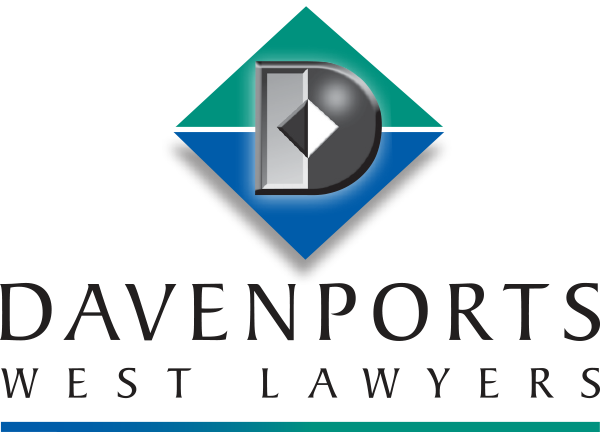Hello
Welcome to our July Newsletter
In New Zealand, the settlement of a trust is a frequently utilised legal structure to hold and protect assets for the benefit of people in the future. However what happens when the trustees of your trust partake in decisions which cause the beneficiaries to question whether the assets held in the trust are being effectively maintained for the least cost and for the greatest gain. What happens if some beneficiaries are treated more favourably than others? What rights at law do these beneficiaries have against Trustees for demanded information?
This vexed legal issue was recently explored by the Chancery Division of the England and Wales High Court in the case of Lewis v Tamplin (2018 EWHC 777 Ch). The case concerned a farm on the outskirts of Cardiff that was left in trust by the will of the late Gladys Tamplin, 30 years earlier, for the benefit of her six children and their issue.
Only two of the original beneficiaries, Edward Tamplin and Jane Wayne, were still alive and remained as trustees along with Edward’s son John. The three other beneficiaries are the settlor’s grandchildren – Hugh Lewis, Rhys Lewis and Sadie Lougher.
These three beneficiaries were trying to obtain information on the trustees’ negotiations and dealings regarding the land, which was worth a large sum – in the order of 10 million pounds – because of its housing development potential. The beneficiaries were concerned that distributions of money had been made to other beneficiaries of the trust, but not to them. They also wanted to check that option agreements with potential buyers had been prudently entered into, and whether the land had been generating any income. This was because at least one housing company was trying to buy the land.
The grandchildren, having failed to obtain satisfaction from the trustees, took the matter to court to seek information from the Trustees.

In his judgment, His Honour Justice Matthews took a dim view of the trustees’ attitude. They had, he said, ‘taken an extreme and in my judgment indefensible approach to disclosure in this case, first by denying (on a very weak basis) that the claimants were beneficiaries at all, and then by putting forward a series of hopeless arguments against giving information to the beneficiaries’. The evidence was, he said, that the claimants wanted the information for ‘precisely the right reasons, namely, to hold the trustees to account, and thus to vindicate their own beneficial interests, by way of an action for breach of trust if need be’.
Justice Matthews went on to hold: ‘I do not accept the argument for the trustees that the court should not order disclosure of particular categories of documents merely because in the opinion of the trustees the beneficiaries already have had sufficient information’, he said. The beneficiaries have the right to hold trustees to account for their stewardship of the trust fund and the performance of the trust obligations which they accepted. … The court will not be satisfied with the say-so of the trustees that they have had sufficient information already, but will make its own mind up as to whether the information sought should be disclosed.’
The trustees had even claimed legal professional privilege against the beneficiaries regarding all the trustees’ communications with their lawyers, a position Justice Matthews described as untenable.
By drawing a distinction between administrative and dispositive powers the judge went on to observe that legal advice for the benefit of the trustees personally, for example in relation to possible breach of trust liability, and which they paid for out of their own pockets, may well be privileged in favour of those trustees as against these beneficiaries. ‘But, where the advice is sought for the benefit of the Tamplin Trust as a whole, and the trustees pay for that advice out of Tamplin Trust funds, then such advice, even though it may be privileged as against third parties, is not privileged as against the beneficiaries, and is liable to be ordered to be produced.’
The allegations made by the claimant grandchildren were, he said, all matters that must excite the suspicion of the court, though there may be perfectly proper and innocent explanations for all of them. ‘A prima facie case has been established in those areas’, he said, ordering the trustees to disclose a long list of documents to the claimants.
These are some of the categories of documents that the Trustees had been ordered to provide:
- All legal advice that the trustees have received concerning their potential liability for breach of trust – except to the extent that the trustees have paid for the advice from non-trust sources, i.e. professional advice obtained by the trustees for the benefit of the trust and at the cost of the trust is not protected from being produced to the beneficiaries.
- Information and documents relating to a conditional fee arrangement that the trustees have entered into with professional advisers i.e. the beneficiaries are entitled to “information about the trust, its assets and the trustees stewardship of them”.
- The beneficiaries are to be given copies of professional advice that has been provided for the benefit of the trust and at the cost of the trust.
While this is a decision of the English and Welsh High Court it would seem to be highly persuasive upon New Zealand’s jurisdiction and in any circumstances not too dissimilar here in New Zealand the decision in Lewis v Tamplin may well apply.
If you have any query relating to your trust or if you are a beneficiary desirous of information from your trustees or indeed on any other legal matter please do not hesitate to contact us to organise a time or to just discuss your matter over the phone.
Kind regards
The Directors
DAVENPORTS WEST LAWYERS LIMITED

Get Straightforward Property Law Advice
When it comes to Conveyancing and Property Law, Davenports West offers West Auckland a combination of experience, legal skill, and commercial understanding that sets us apart. We understand that when it comes to buying and selling property…

Are You Taking The Time To Think Big?
As a business person, it’s easy to get mired in a sea of emails, phone calls, and operational and personnel problems, leaving almost no time for your regular responsibilities. This hectic day-to-day scramble won’t just run you ragged, it’ll…

How To Return From Your Holiday ‘On Fire’
After some time away, it’s common to feel a little lost and not know where to start. Don’t just sit in front of your computer with a cup of coffee and hope that inspiration will strike. Instead, review what you were doing just before the holidays, and…

4 Essential Tips For Explosive Effectiveness
If you feel that the time and energy you put into your job are not yielding the results you expect, it may be time to focus on increasing your personal productivity. How to Increase Your Personal Productivity If you’re struggling to achieve everything…
